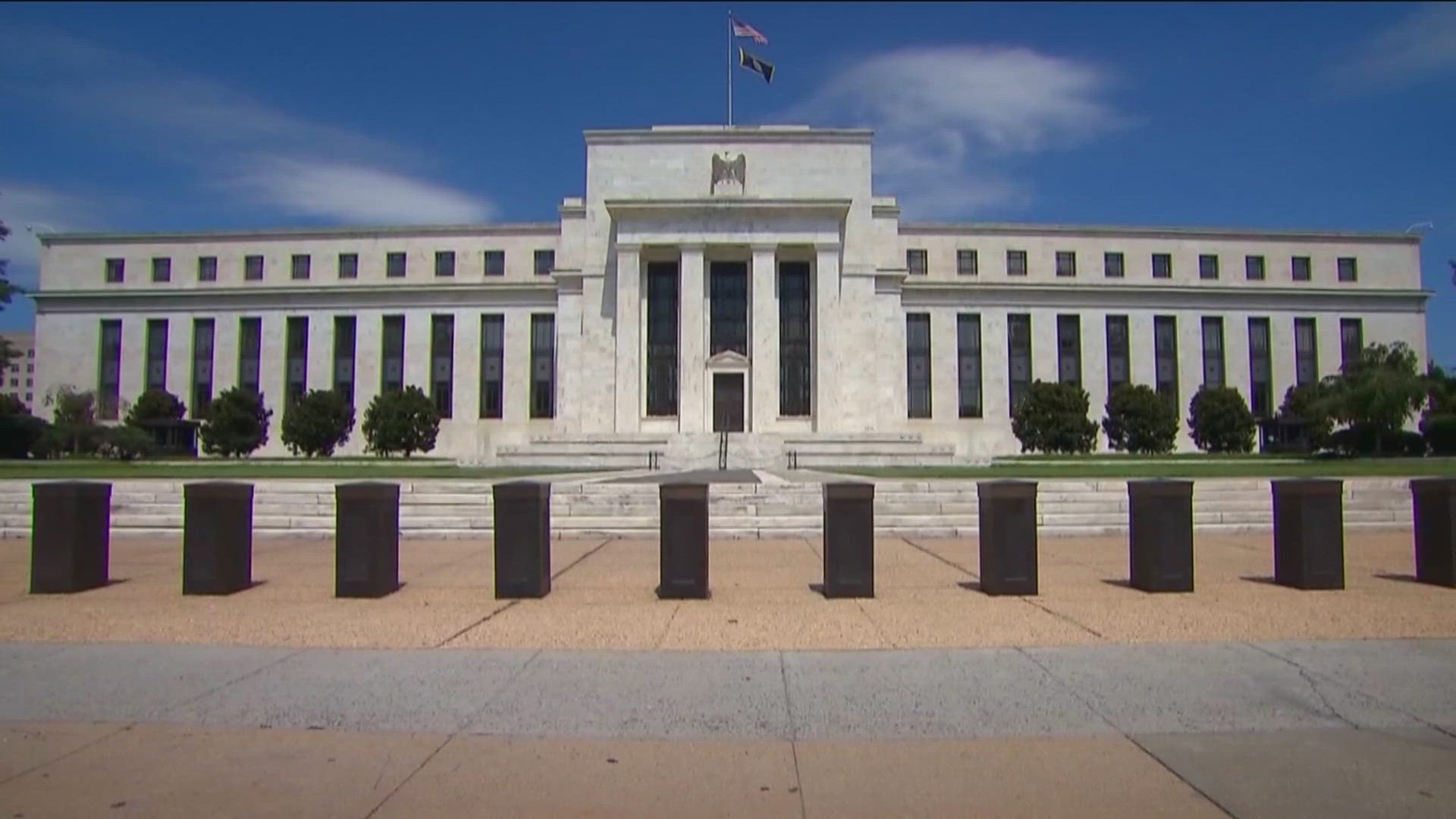SAINT PAUL, Minn. — The financial world is buzzing after the Fed announced plans to cut the federal interest rate by 0.5%.
The stock market reacted immediately after the announcement was made Wednesday afternoon, with many indexes jumping initially and then ending the day negative.
Economists say the rate cut will send shockwaves throughout the entire economy, but how will the rate cut affect the average American consumer?
Let's start with credit cards.
University of Saint Thomas Economics Professor Tyler Schipper says the rate cut will have a significant impact on credit card interest rates.
“There are a couple of places where you’ll see the impact relatively early and one of those places will be with credit cards,” Schipper explains.
“Borrowers will see a lower rate on their bill very quickly, maybe a billing cycle or two, that you’ll actually start to see those credit card interest rates come down.”
It’s unclear how significant the interest rate cuts on credit cards will be, but Schipper says it’s very possible they will be close to matching the 0.5% cut on the federal rate.
“A half-percent drop may not seem like a big deal for some people, but if you have a lot of credit card debt, that can have a big impact on your ability to get on top of it,” Schipper says.
The Fed’s rate cut will also have an impact on auto loans.
Professor Schipper says there is a weaker correlation between the federal rate and the interest rates on car loans, but he suspects car buyers should see some relief in the coming months.
"Car loans are tricky,” Schipper says.
"My best guess would be they are responsive, but not as responsive as those credit card rates."
The rate cut will also affect the housing market.
Schipper says mortgage rates were already going down heading into the Fed's meeting this week, and we could see another drop slowly over the next few months.
But the immediate impact could be a rush of homebuyers coming back into the market.
"Because people have been sitting on the sideline for so long that they feel like it's now time to start searching. So there very well might be a psychological effect to this,” Schipper says.
It's not all good news for consumers.
Schipper says savers will see lower returns on their savings accounts, bonds and CDs, which could affect seniors who are depending on those higher returns to maintain their retirement.
"A lot of those interest rates that were rewarding savers are going to start to come down,” Schipper says.
"Where people might want to store their extra dollars is going to change again as these interest rates come down."
The Fed will meet two more times before the end of the year, and many economists believe we could see another rate cut, maybe even two rate cuts, by the end of the year.
So, some good news for borrowers, but for savers, those high returns are going to come back down to a normal level.

